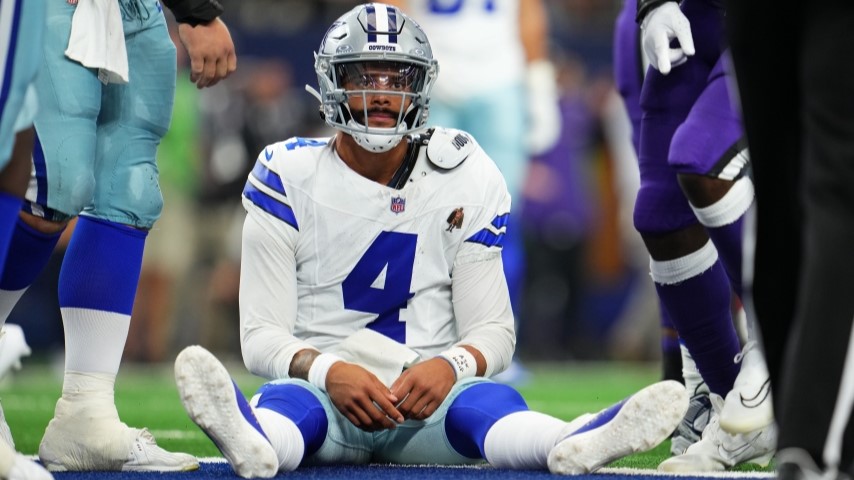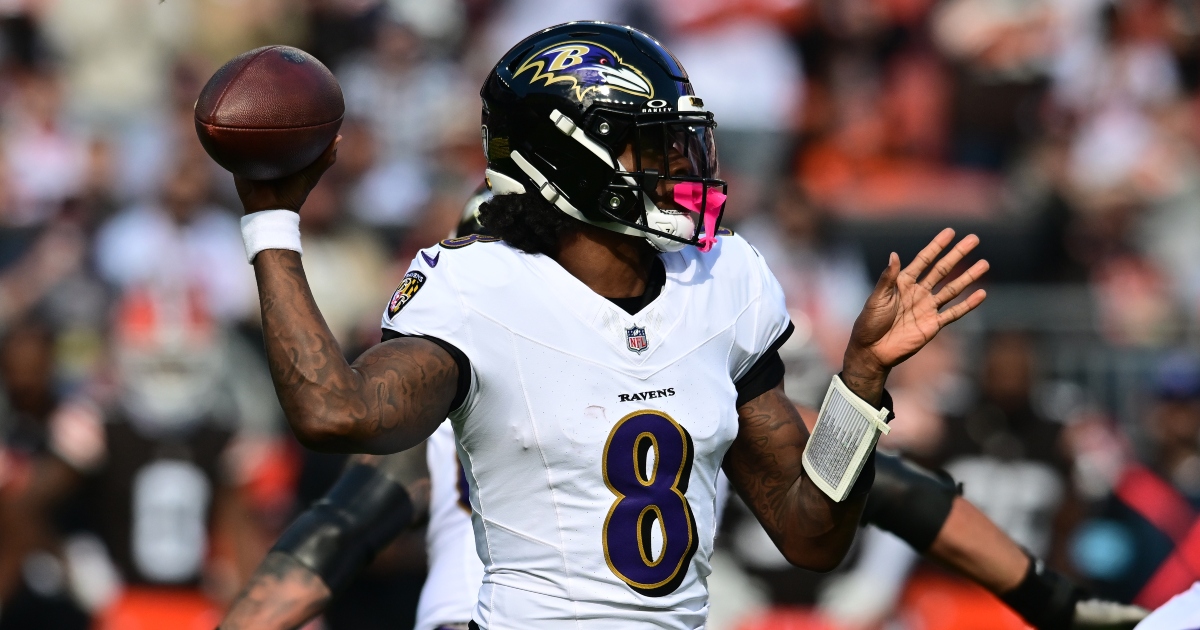

America is a nation of temporarily embarrassed millionaires trapped by the billionaire class. We wax poetic about democracy and meritocracy inside of a top-down controlled world, telling ourselves a fantasy about what this country is while ignoring what it proves itself to be–all as myriad crises fester far from the consequences faced by the capitalist class. Perhaps that’s why sports are so popular. They are the lone part of America that is actually centered around meritocratic ideals (just so long as you don’t kneel before the national anthem).
And make no mistake, legalized sports gambling is one of those many crises plaguing this country. Charles Fain Lehman covered a litany of new studies in an excellent article for The Atlantic today, and they all indicate that the legalization of sports gambling has largely been a disaster.
There are some predictable outcomes, like Northwestern University’s study which found that legal sports gambling depletes household savings by $2 for every $1 gambled, and economists at UCLA found that legalization increases the risk a household goes bankrupt by 25 to 30 percent.
But there are even darker consequences that come with a wave of highly addictive betting apps that sports leagues have made inseparable with their product, like how Oregon economists found that legal sports betting leads to about a nine percent increase in intimate-partner violence. Men’s Health conducted a poll of men in 2023 where 58 percent of respondents said sports betting has affected their mental health, 43 percent say it has affected their physical health, and 18 percent say it is “destroying [their] life.”
Eighteen percent is almost thirty million American men.
Their poll had plenty of other distressing results too, indicating that “nearly half believe that both sports-betting advertisements and promotions have influenced their gambling habits,” while 44 percent ”say it’s difficult to watch a sports game without feeling the urge to bet,” and a gobsmacking 51 percent “would be willing to wager $10,000 on a game if it meant potentially winning $1 million.” Nearly one in five men say they allot a quarter of their paycheck to sports betting, while one in five are or have been in debt from sports betting.
Last year, Men’s Health wrote a great breakdown of the dangers of ubiquitous sports gambling, noting that “according to one study, Black men are more likely to develop a gambling addiction than white men” and “the average debt generated by a man addicted to gambling is between $55,000 and $90,000.”
Same Game Parlays have proven to be one of the most predatory products in modern American history.
How many Americans lost a mortgage payment this weekend? Or flew off the handle at a loved one after the Falcons’ failed fourth down sealed Chiefs -3.5 on Sunday Night Football? These are not questions the gambling industry seems interested in even acknowledging, let alone addressing, but we have enough data at this point to know that they are clearly intrinsic to their business model.
Which helps it fit perfectly in America’s constellation of unaddressed crises. Why bother fixing something supposedly trivial like sports gambling when we’re already failing to address the climate crisis at the scale it demands? Why do something to fix our housing crisis immiserating millions of Americans when the billionaires have accepted a fate where the oceans swallow us whole anyway? Why do anything at all so long as corporate profits keep rising?
American ideology is defined by our rugged individualism, and this translates to neoliberal policies where economic power takes what it wants and leaves us to fight over the scraps. Peons worry how many yards rushing Josh Allen will have tonight, but real power is setting a line that gets equal action and pocketing the vig. Risk-free profit is the American dream that America’s elite have created for themselves, and it is baked into the business model of sports gambling. Capitalism offloads its social costs on to the rest of us, so while that DraftKings commercial highlighting a crazy backdoor cover may seem harmless, data indicates that real harm befell someone as a result of a bet made on DraftKings, FanDuel, BetMGM, and the handful of major market players who define this specific oligopoly of American misery from the other ones.
It’s easy to offload this on to a small segment of the population, as The Atlantic notes that “about five percent of bettors spent 70 percent of the money in New Jersey in late 2020 and early 2021,” but this just follows the same pattern as the gun market. The conditions defining sports gambling today are all geared toward turning everyone into addicts, and expecting everyone to navigate this minefield on their own is yet another example of the failure of our hyper-individualistic ideology.
Competition is good and putting some money behind your convictions doesn’t make you an addict. I run an NFL picks league that has been going for fifteen years, and being able to compete with a group of people who have helped define my Sundays this past decade is more fun than hitting any crazy parlay FanDuel successfully sells me. But like everything in this era of American loneliness, gambling has become atomized, and its negative effects are exponentially exasperated. Instead of the past where you had to go out into the world to a casino or organize a pool with your friends, now you can just open your phone and do it all on your own without ever interacting with another person. I don’t think I have ever heard a sports betting commercial say the phrase “pull yourself up by your bootstratps,” but that is the implicit deal they are offering with Same Game Parlays to a legion of American men primed to believe they can outsmart everyone else watching the same games they are.
The market is swallowing everything whole in this swan song of American empire, and sports gambling is perhaps the best metaphor you’ll see for the broader collapse and denial that surrounds us. Shohei Ohtani, baseball’s best player ever who is putting the finishing touches on a historic 50/50+ season, began the year at the center of a federal gambling investigation. NBA Champion Michael Porter Jr.’s brother Jontay is banned from the NBA forever for influencing betting props on his statistics. Young men across the United States are going bankrupt and increasing their risk of suicide as leagues still integrate gambling into every square inch of their broadcasts with no end in sight, all while the tax revenue promised to states from this drag on its people falls well short of its promises. This is the world that unchained market forces hath wrought. This is America.







